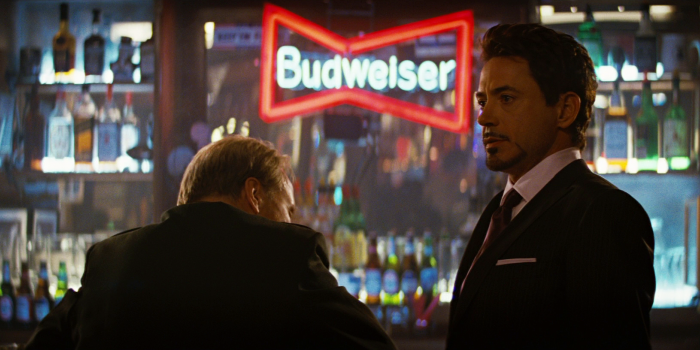
Cast: Edward Dziewonski, Barbara Polomska, Ignacy Machowski
Director: Andrzej Munk
Country: Poland
Genre: Comedy | Drama
Editor’s Notes: The following review is part of our coverage for Martin Scorsese Presents: Masterpieces of Polish Cinema which runs from February 5th to 16th. For more information on this film series visit filmlinc.com and follow The Film Society of Lincoln Center on Twitter @FilmLinc.
The title of Andrzej Munk’s second feature, Eroica, translates as “heroism,” a universal human theme that’s typically treated in historical narratives with nationalistic reverence. A depiction of life under Poland’s occupation by the Germans during World War II and in the aftermath of the failed Warsaw Uprising of 1944 might be an opportunity for such hagiography, but the dual segments directed by Munk and written by Jerzy Stefan Stawinski revel in turning the expected on its head. Rather than celebrating a rugged individual ready to die for his country, the film’s first half features a craven but clever opportunist unwillingly dragged into a logistically-strained alliance with the Hungarian army; in the film’s second half, the romanticized image of a lone hero escapee from a POW camp is revealed as a convenient fiction perpetuated to boost and maintain morale. Eroica proves its worthiness to be included in the Film Society of Lincoln Center’s program “Masterpieces of Polish Cinema,” curated by Martin Scorsese, by treating its nation’s recent history and starkly one-sided international relations with poignant irreverence.
 The two halves of Munk’s satirical diptych are titled with musical terms, the first being “Scherzo alla Polacca,” or “the Polish joke,” with Eroica itself another name for Beethoven’s Symphony No. 3 in E-flat major. In addition, a scherzo can be musically jesting and fast-moving, fair terms for the fleet narrative of reluctant ne’er-do-well resistance fighter Gorkiewicz (Edward Dziewonski), nicknamed “Ninny.” The very opening scene is a masterful setting of the stage, establishing Ninny’s absent-minded anxiety at having to march with a ragtag group of civilians-turned-militiamen; his mere presence deflates the heroic myth of military service, accompanied on the soundtrack by a faux-heroic horn that gets drowned out by a tinkly xylophone. He spots a hovering bomber’s imminent threat while his superior is focused solely on regimented formation. Ninny takes the consequent air raid as a perfect opportunity to escape his obligations, but the twists and turns of his trek through the war-ravaged outskirts of Warsaw constitute a more modern kind of duty, one that may have been shocking at the time but is thoroughly recognizable now as practical, contingent, and opportunistic, qualities that warfare forces many of its unwilling participants into embodying.
The two halves of Munk’s satirical diptych are titled with musical terms, the first being “Scherzo alla Polacca,” or “the Polish joke,” with Eroica itself another name for Beethoven’s Symphony No. 3 in E-flat major. In addition, a scherzo can be musically jesting and fast-moving, fair terms for the fleet narrative of reluctant ne’er-do-well resistance fighter Gorkiewicz (Edward Dziewonski), nicknamed “Ninny.” The very opening scene is a masterful setting of the stage, establishing Ninny’s absent-minded anxiety at having to march with a ragtag group of civilians-turned-militiamen; his mere presence deflates the heroic myth of military service, accompanied on the soundtrack by a faux-heroic horn that gets drowned out by a tinkly xylophone. He spots a hovering bomber’s imminent threat while his superior is focused solely on regimented formation. Ninny takes the consequent air raid as a perfect opportunity to escape his obligations, but the twists and turns of his trek through the war-ravaged outskirts of Warsaw constitute a more modern kind of duty, one that may have been shocking at the time but is thoroughly recognizable now as practical, contingent, and opportunistic, qualities that warfare forces many of its unwilling participants into embodying.
“Scherzo alla Polacca” could have been distressing and maudlin, following a lone figure to his probable demise amidst the ruins of his home country, but Munk and Stawinski want to completely reverse the tone as well as trajectory of the standard story of heroism. Ninny is a scheming but frequently quick-witted and likeable underdog with a penchant for walking into service for others; the discovery of his wife (Barbara Polomska) being friendly with a smiling Hungarian officer (Leon Niemczyk) leads improbably to becoming a messenger between the Polish and Hungarian high commands, ferrying an offer of equipment by the Hungarian military. To cross the battleground that is Poland he disguises himself as a refugee, which only results in interrogation and brief imprisonment by his own side! Munk and Stawinski are fearless and relentless in exposing the foibles of their countrymen during times of war.
Eroica proves its worthiness by treating its nation’s recent history and starkly one-sided international relations with poignant irreverence.
Some of the most memorable moments of “Scherzo” occur once Ninny has gotten drunk off some wine he’s discovered and wanders into a heated battle amidst bombed-out rubble, too harrowing and visually akin to Rossellini’s “war trilogy” if not for Ninny’s incongruous comic presence. A German tank wanders into his vicinity near a lake and fires a warning shot just to spook him, then trundles away in triumph; the enemy takes him as seriously as a threat as his compatriots do as a hero. He wanders back to his Hungarian liaisons with a coded response from the Polish leadership, and it turns out to be a refusal of the Hungarians’ help. So much for the undeniably heroic risk undertaken by our protagonist. Such black irony was new to mainstream Polish cinema but would soon become an essential strand of its aesthetic character.
 At times reminiscent of a darker version of Billy Wilder’s Stalag 17, Eroica‘s second story of redefined heroism, “Ostinato Lugubre,” befits its somber musical namesake. Typified by a claustrophobic hopelessness only hinted at in “Scherzo,” the episode chronicles a barracks of military prisoners maintaining protocol and hierarchy through the legend of Zawistowski (Tadeusz Lomnicki), the sole escapee and model for future escape attempts. The highest officers also live relatively comfortable lives, benefiting from the codes of the Geneva Convention while propping up the image of Zawistowski as the model of heroism for the rest of the men; again, the writer and director are unsparing of their own people while hardly even depicting the enemy.
At times reminiscent of a darker version of Billy Wilder’s Stalag 17, Eroica‘s second story of redefined heroism, “Ostinato Lugubre,” befits its somber musical namesake. Typified by a claustrophobic hopelessness only hinted at in “Scherzo,” the episode chronicles a barracks of military prisoners maintaining protocol and hierarchy through the legend of Zawistowski (Tadeusz Lomnicki), the sole escapee and model for future escape attempts. The highest officers also live relatively comfortable lives, benefiting from the codes of the Geneva Convention while propping up the image of Zawistowski as the model of heroism for the rest of the men; again, the writer and director are unsparing of their own people while hardly even depicting the enemy.
Two new detainees, Szpakowski (Roman Klosowski) and Kurzawa (Józef Nowak), have been in more recent combat and want to merely wait out their incarceration rather than focus obsessively on the propped-up military self-image. Kurzawa eventually discovers the truth about Zawistowski’s fate: he never really escaped but merely fled to the barracks attic and stays there with the complicity of the two highest-ranked officers, succumbing to the impossible restlessness and weariness that would later afflict Zak (Józef Kostecki), Zawistowski’s lonely close friend. Zak’s own escape attempt comes closest to the popular ideal of heroism, but his characterization and his act’s blank suddenness make it aberrant rather than exemplary. The fabricated story of escape not only provides a sliver of hope but also deflects any blame for the senior command’s relative inertia. The film closes with Kurzawa’s choice between silence and the truth ultimately unresolved, leaving him to consider his own ethical limits and willingness to provide hope through illusion from a position of privilege. Whose heroism (Zawistowski’s, Zak’s, or Kurzawa’s), if indeed one could call any of them “heroic,” is worth emulating?
Munk and Stawinski are fearless and relentless in exposing the foibles of their countrymen during times of war.
There was a third segment to Eroica, dubbed “Con Bravura,” that Munk decided to cut since it was apparently too marked a contrast in tone to the other two parts; thankfully, this absence renders the tragicomic force of the film all the more striking. The protagonists of “Scherzo alla Polacca” and “Ostinato Lugubre,” conscripted civilian and career soldier alike caught up in times of war, do what they can to survive, in the process overturning the cherished ideals of heroic self-sacrifice that proved obsolete in the wake of the Nazi invasion and occupation. In telling these crucial and unglamorous stories within living memory of one of Poland’s darkest hours, the most playfully unsentimental exponent of the “Polish Film School” movement dared to challenge his culture’s orthodoxy with wit and passion.
[notification type=”star”]89/100 ~ GREAT. Eroica takes brave aim at the very heart of the Polish character, demolishing then reshaping the notion of male heroism in the modern age.[/notification]



